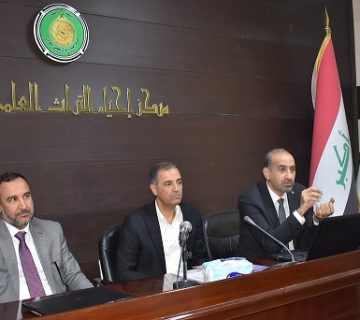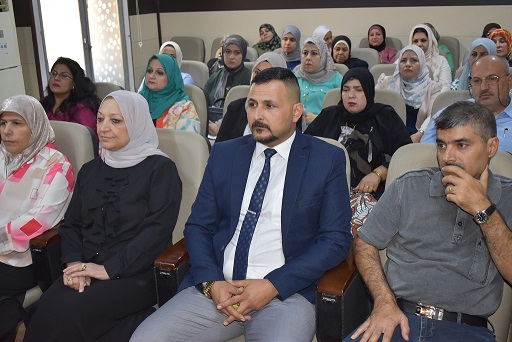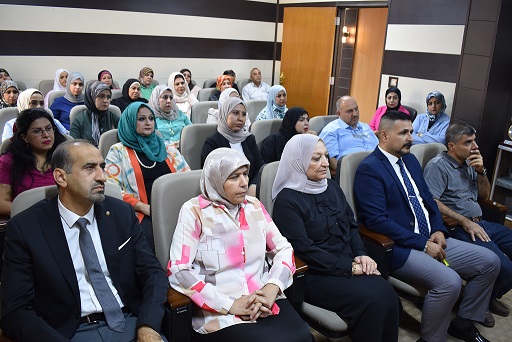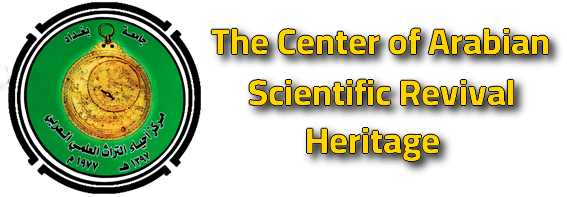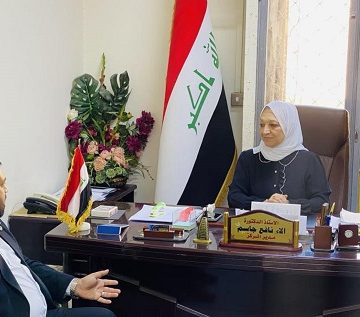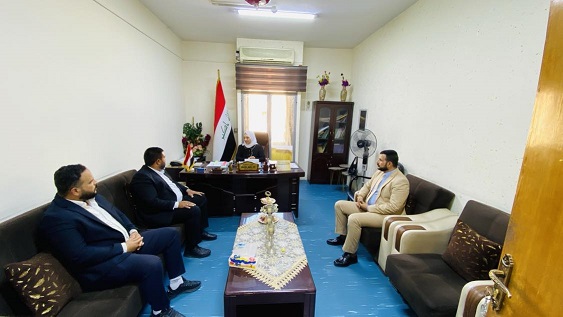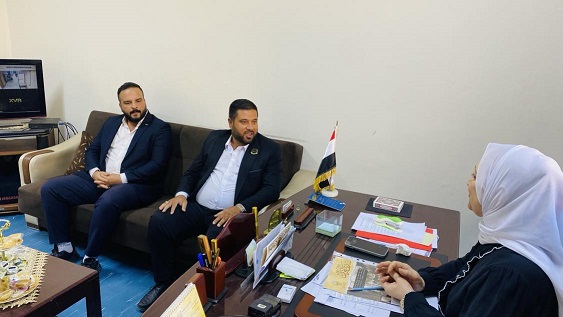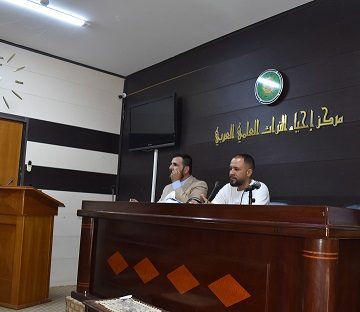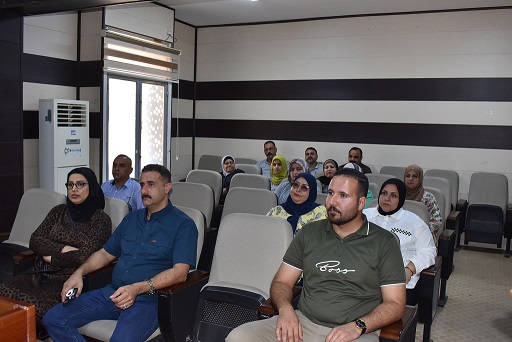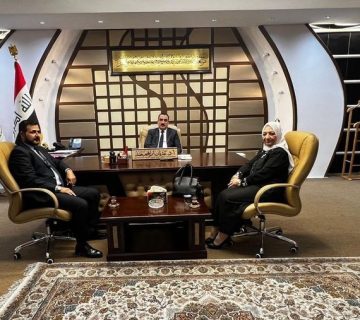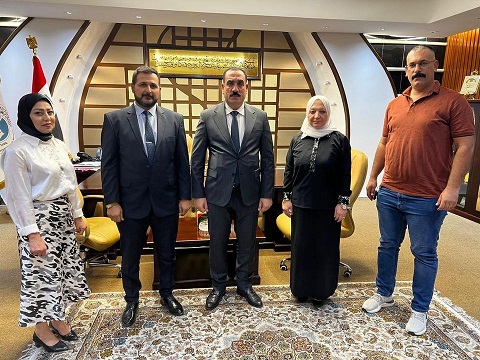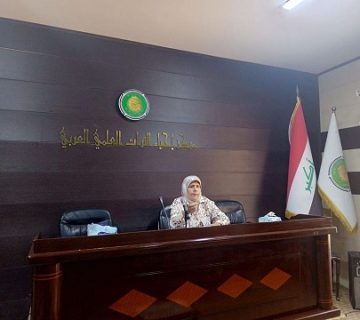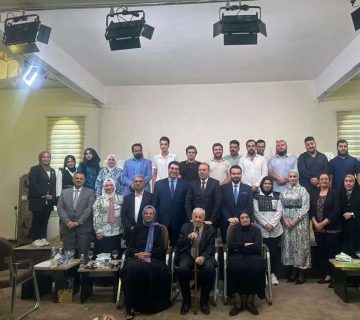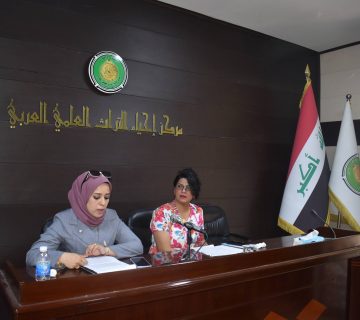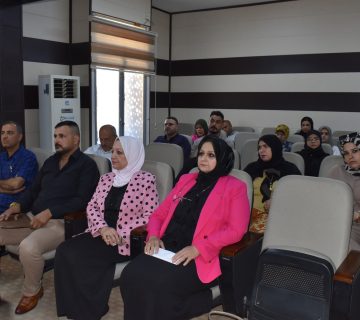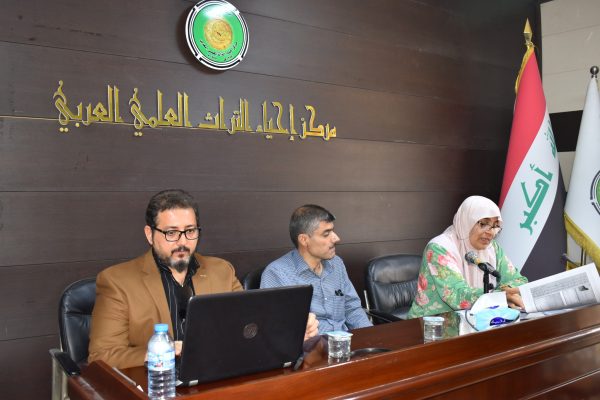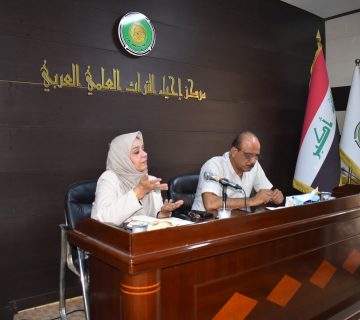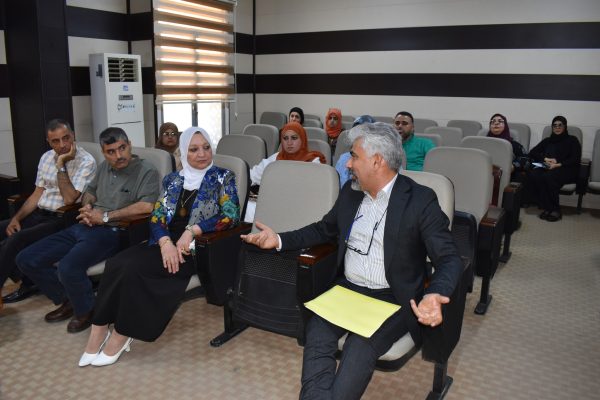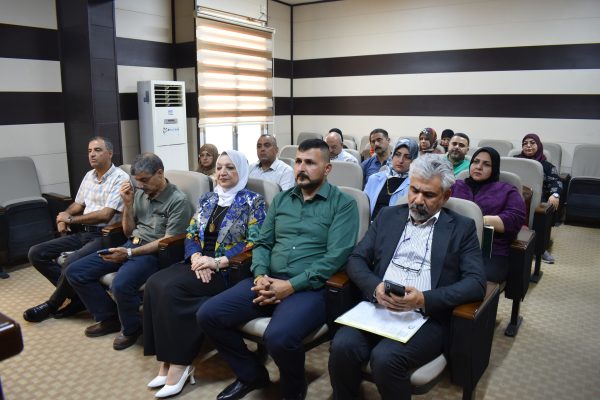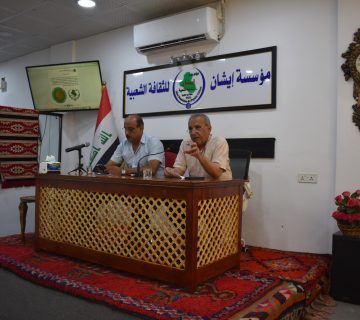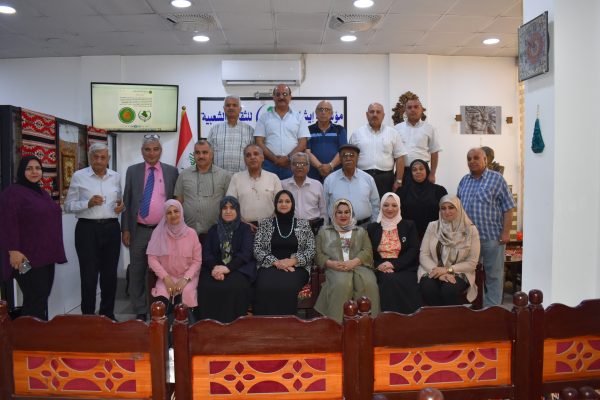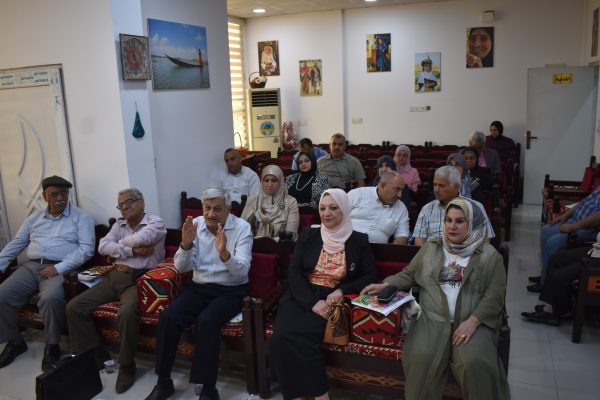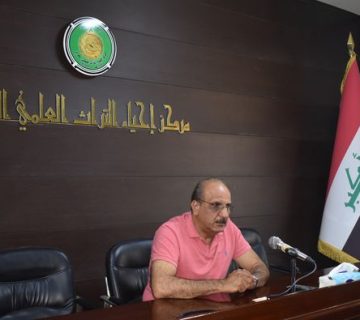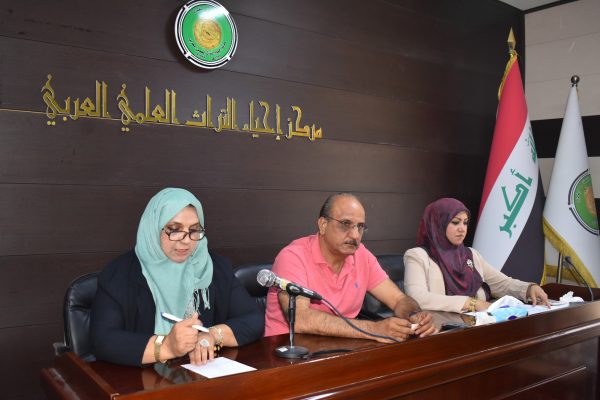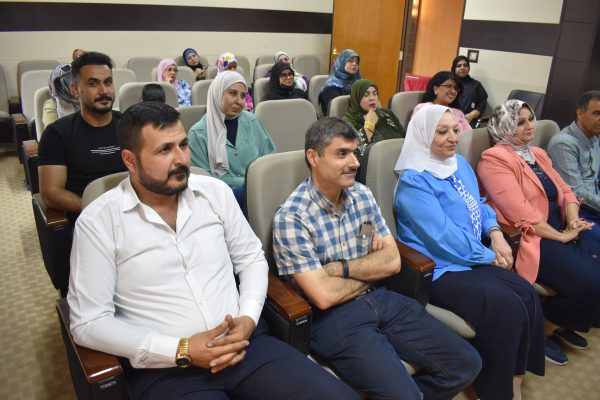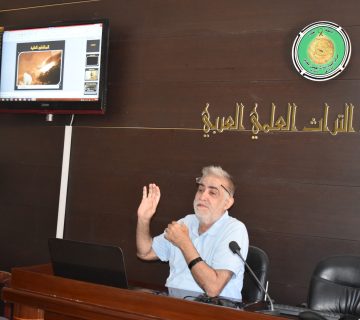Under supervision by the director of the center of heritage revival prof. Dr. Alaa Nafea Jasim , Baghdad documentation department in the center in cooperation with Ishaan Popular Culture organization organizes workshop entitled (Baghdadi scientists and their effect on developing scientific organization through royal era) , the lecture is presented by prof. Dr. Alaa Nafea Jasim with a research entitled (Dr. Matti Aqrawi and his role in developing education)defining Dr. Matti yousif Hanna Aqrawi He is a prominent academic and author in the field of education He was born in 1901 in the city of Mosul and completed his studies there He obtained a doctorate in 1934 in philosophy from Columbia University in the United States of America He played a major role in developing education in Iraq, as he contributed to modernizing and developing the educational system, in addition to his role in establishing the University of Baghdad. He was one of the members of the committee approved by the Council of Ministers in August 1942. He was one of the most vocal supporters of the university project and was at that time Dean of the Teachers’ Home. The high .A Council of Ministers decision was issued on May 25, 1946 establishing the University of Baghdad. Dr. Matta Aqrawi found that the establishment of the University of Baghdad was to prepare a free cultural study, aid research, scientific progress, and spread culture. They may explain that the idea of establishing the university is based on gathering the existing faculties, unifying their systems on sound foundations, and making it an organization independent of the administration of the Ministry of Education. On August 5, 1957, the Council of Ministers initially approved the appointment of Dr. Matta Aqrawi as President of the University of Baghdad. Thus, he assumed the major responsibility with the assistance of his fellow members of the Constituent Council from October 5, 1957 until June 19, 1958. To advance this project and make it compete in its scientific levels with the finest Arab and international universities Dr. Matta Aqrawi was the first president of the University of Baghdad and the last president in the royal era . He passed away on 5/31/1982 ,Then a lecture by Prof. Dr. Bushra Mahmoud Saleh Al-Zubaie (Head of the Department of Historical Studies), Al-Mustansiriya University, presented her research paper entitled (Influential Women in the Institution of Iraqi Sciences During the Royal Era), speaking that Iraqi women had active participation in women’s conferences held in Iraq and the Arab countries during the royal era, and they did not The activity of Iraqi women and the support of the ladies of the royal family is limited to social issues only, but it extends to aspects of cultural, intellectual and scientific life and for the sake of the advancement of women so that they can take their role in particular. The entry of Iraqi women into the fields of education and their contribution to the establishment of cultural associations and clubs had a great impact. In changing the reality of Iraqi women and expanding their awareness. The era of King Faisal I was a new stage in the history of education in Iraq. The conclusion of the research was given by Professor Dr. Ali Haddad Hussein, the title of his lecture (From the icons of Al-Rusafi’s educational thought as an example), as a speaker. Al-Rusafi is considered one of the prominent figures in poetry, literature and culture during the royal era, and he left an academic legacy and a great cultural impact. He had prominent national positions in that era, and he also held high administrative positions in which he contributed to laying solid educational foundations. The poet Marouf Al-Rusafi was born in 1875 AD in Baghdad in an area called Al-Rusafa. He received his primary lessons in the Kuttab and Al-Rashidiya School, but he was unable to obtain a certificate, so he left school and joined the lessons of the scholar Mahmoud Shukri Al-Alusi. During the period of taking the courses, he intensified his efforts in studying sciences. Arabic language and logic..
